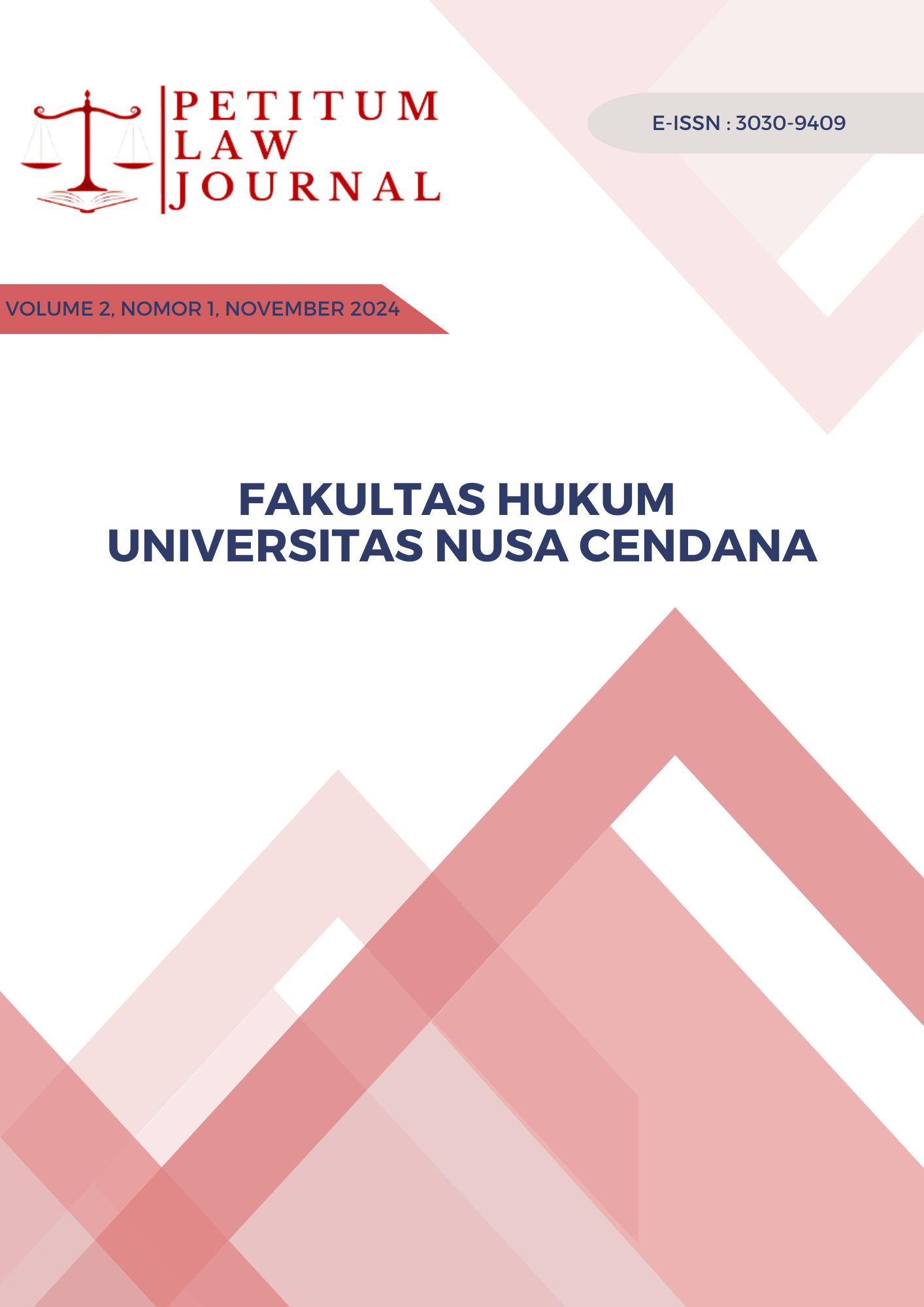PROSES PENYELESAIAN TINDAK PIDANA PENGANIAYAAN YANG DILAKUKAN OLEH ANGGOTA MILITER
Main Article Content
Abstract
This study analyzes the process of resolving criminal acts of persecution committed by military members within the scope of the Kupang III-15 military court. The research method used is qualitative research with a case study approach. Data was collected through interviews with the Staff of the Military Court III-15 Kupang and the perpetrators of the crime of persecution. The analysis was carried out to identify whether there is a difference between the process of resolving crimes of persecution in civil courts and military courts and to find out whether there is special treatment in the process of resolving crimes within the scope of the Kupang Military Court. The formulation of the problem in this study is 1. What is the process of settling criminal acts of persecution committed by Military Members (Case Study of Military Justice III-15 Kupang)? 2. What are the factors that affect the effectiveness of military justice in dealing with criminal acts of persecution committed by Military Members (Case Study of Military Justice III-15 Kupang)? The results of the study show that the process of resolving criminal acts of persecution committed by military members is carried out in accordance with Law Number 31 of 1997 concerning Military Justice, which involves various stages, ranging from reports or direct findings by officers, examinations to prosecution and criminal acts in the process according to the Criminal Procedure Code. Military members who commit criminal acts of persecution will be examined by the ankum, if the persecution is light, then the ankum is of the opinion that the problem does not need to be resolved through the judicial process. This finding provides insight into efforts to improve the supervision system in each TNI unit and improve the law enforcement system in terms of transparency in the process of resolving criminal acts of persecution committed by military members within the scope of the military court III-15 Kupang.

